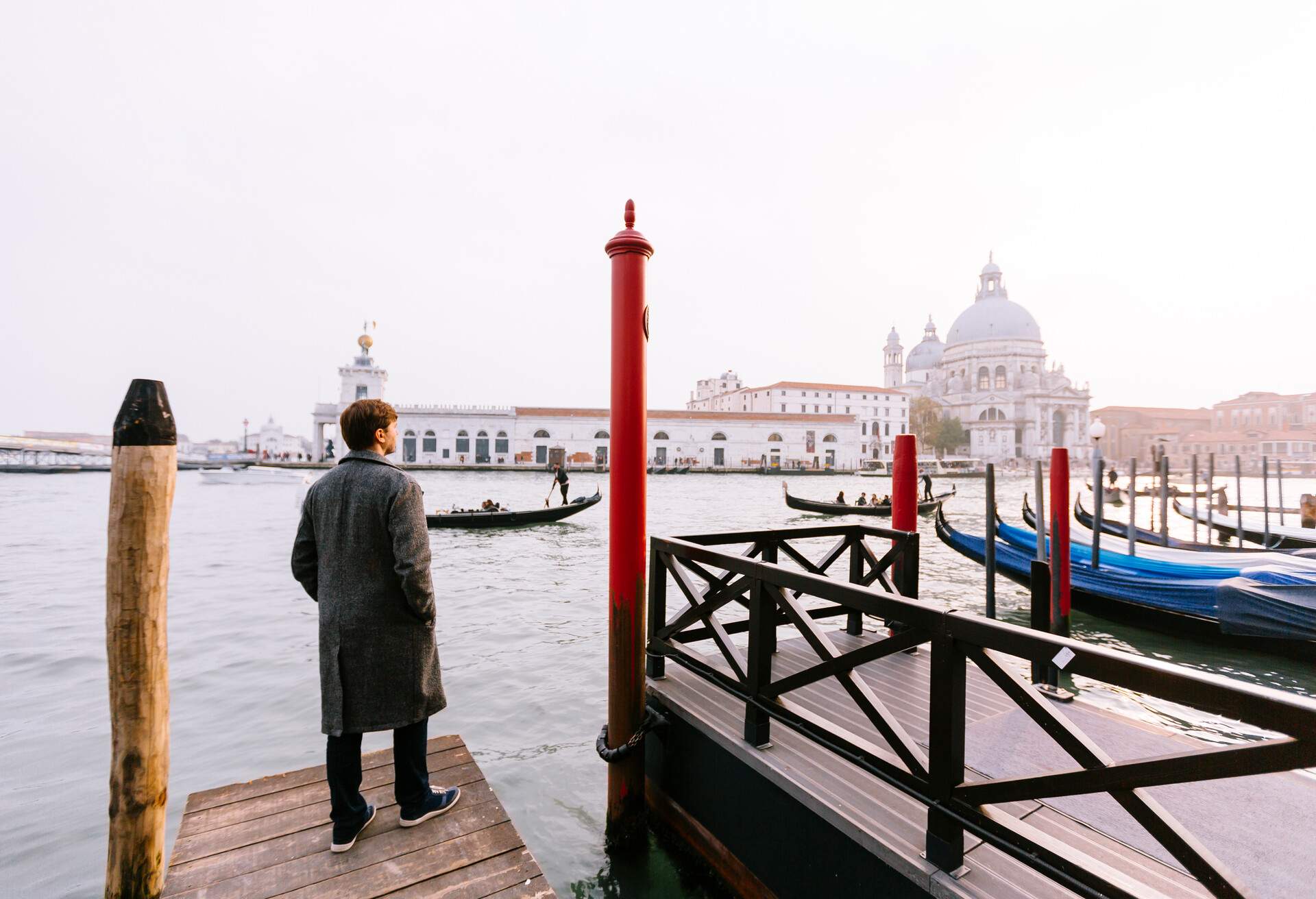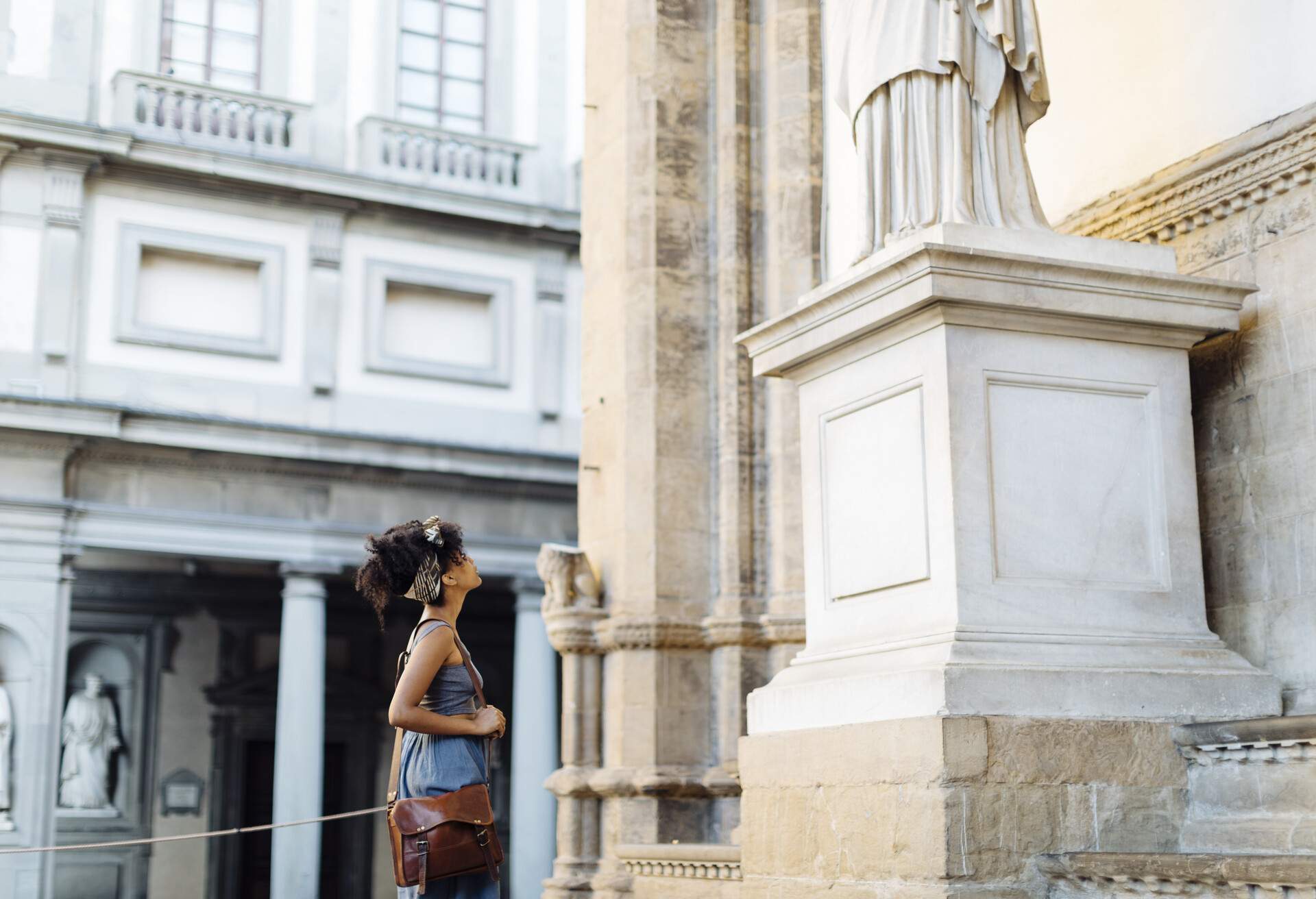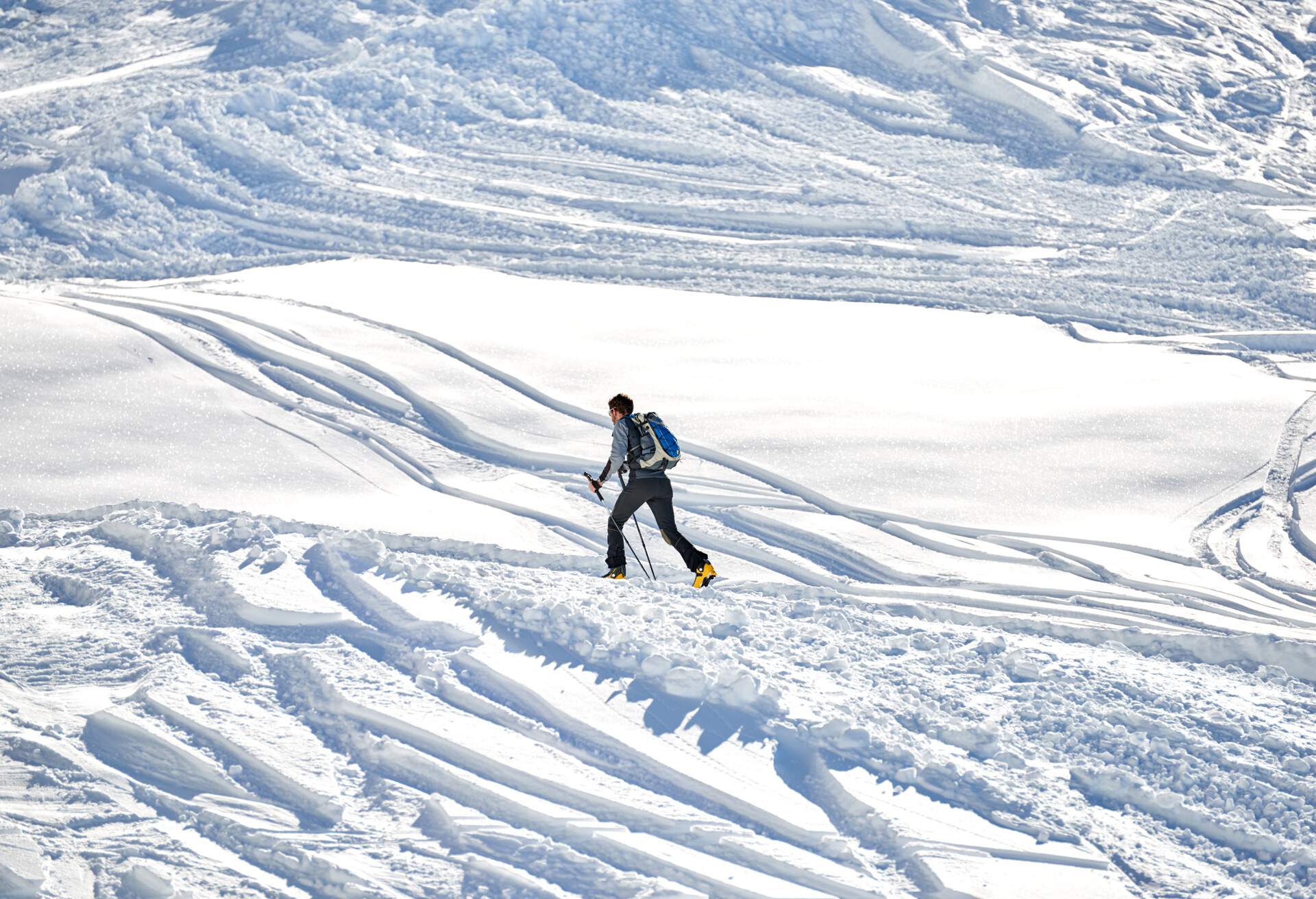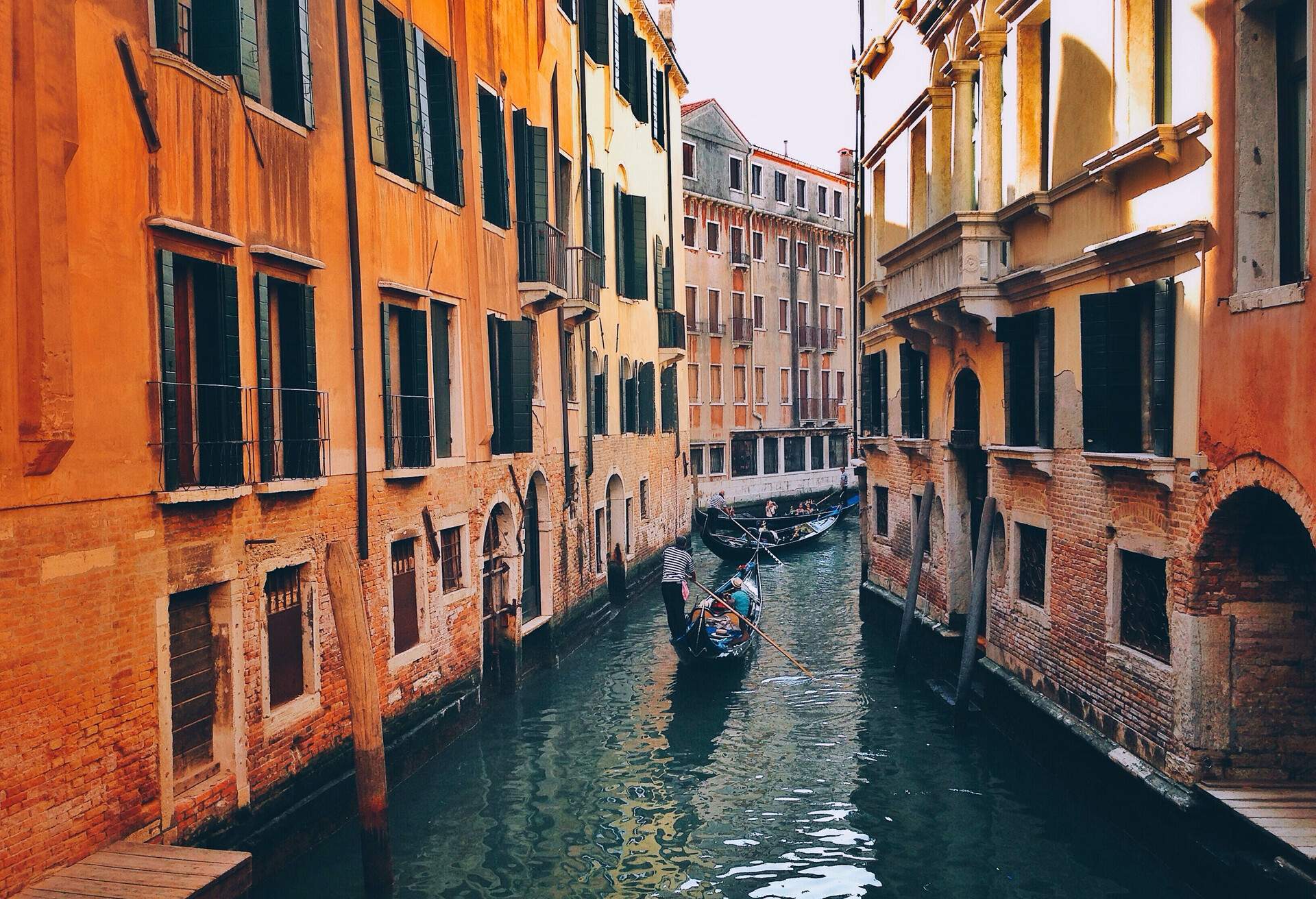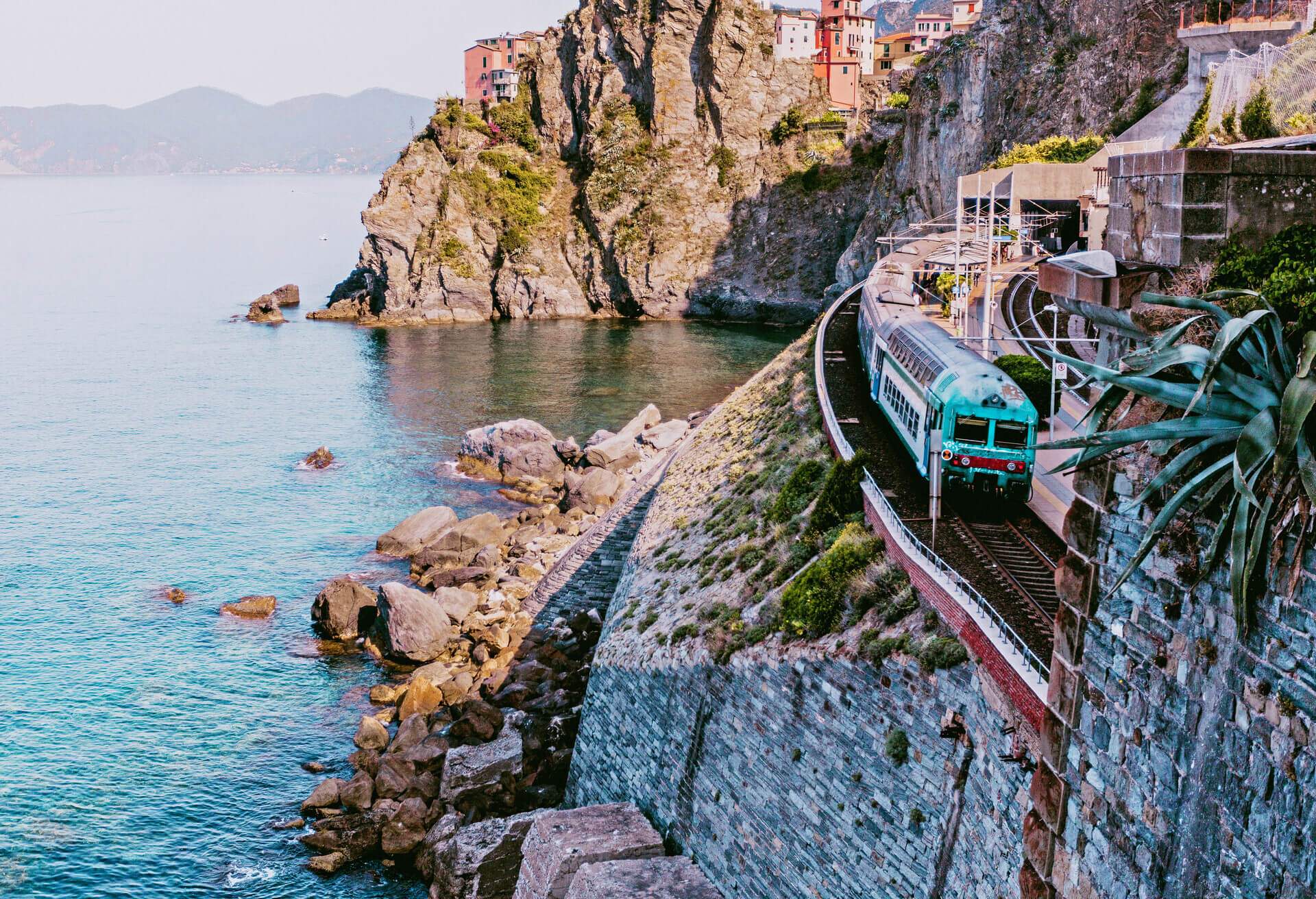Venice in winter has a romantic feel with lingering fog and mist over its canals and ancient monuments. It’s when the number of tourists has calmed, allowing Venetians to reclaim their cobbled streets. If you’re looking for an authentic, quieter trip to Venice – winter is the perfect time.
The winter season runs from late December to late February. It’s cold, but not freezing with average temperatures of 2.5°C in January and 4.5°C in February. There can also be wind and occasional rain. But don’t let that stop you. The charm of the city and streets draped in Christmas decorations in the winter make up for the lack of sun.
Winter is also one of the cheapest times to travel to Venice, with reasonably priced flights and hotels. Read on to learn about winter weather in Venice (and what to pack), winter festivals, Valentine’s Day and the best classic attractions.
Winter weather in Venice
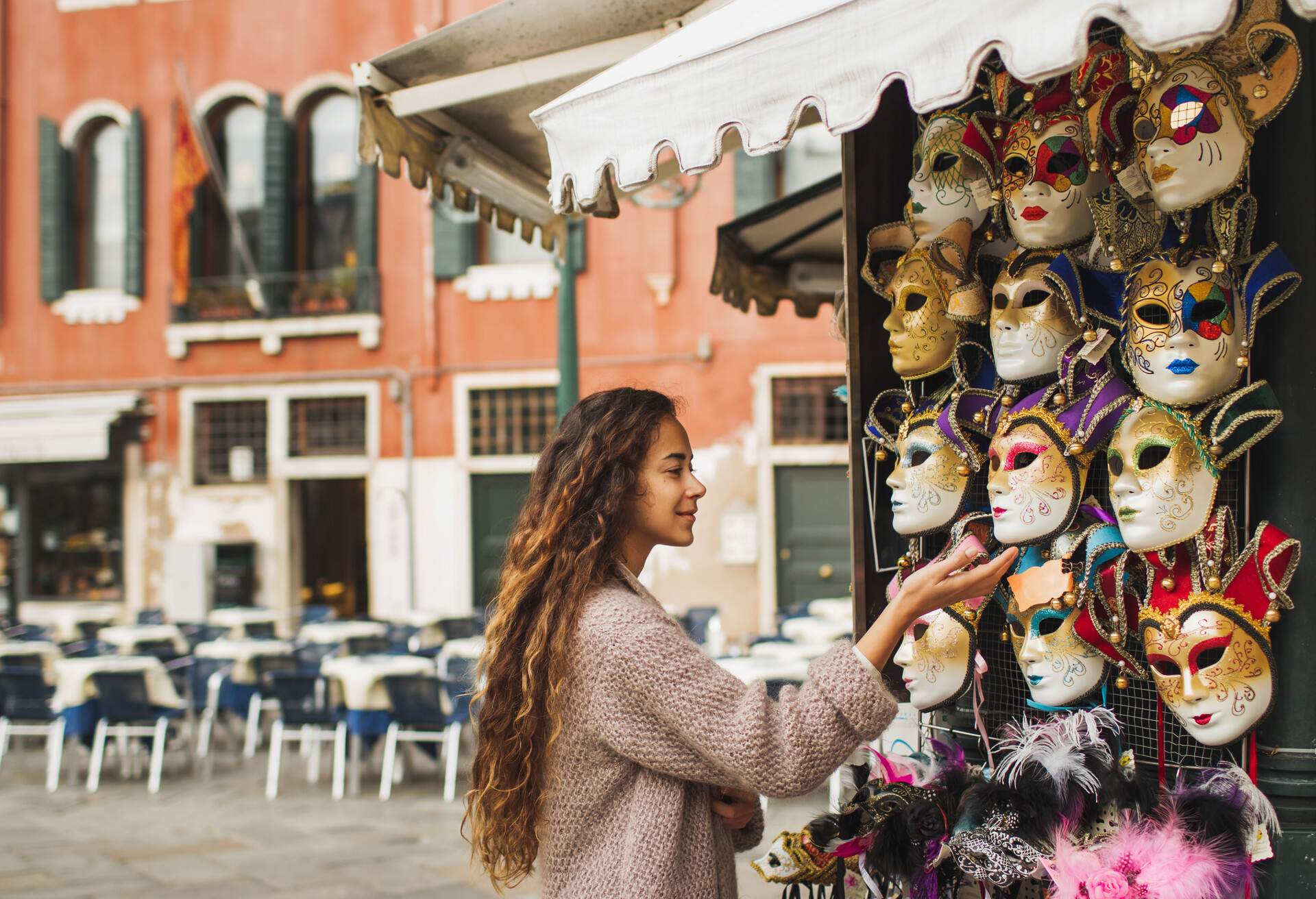
Winter in Venice is cold, with temperatures beginning to dip as early as November and staying low as late as March.
The average December weather temperature in Venice is around 3°C, whilst in January, they dip as low as -1°C. You may occasionally get a flurry of snow in Venice in January when it is at its coldest, but it hardly sets as the temperatures are either too warm or too wet.
When snow does settle, the city is transformed into a magical winter wonderland. Pack warm clothing if you have a winter trip planned, including an overcoat, gloves, a hat, and waterproof shoes as streets sometimes get flooded.
Winter festivals in Venice
Venetians are passionate about their culture, which they guard and embrace with much gusto, so if you happen to be in Venice during any of their festivities, you’re in for a great time. Many have religious significance but offer a glimpse of Venice’s rich history and are welcoming and open to everyone.
Meanwhile, nothing is as poignant as attending a midnight mass under the elaborate frescoes of St Mark’s Cathedral on Christmas Eve. And walking through the nearly deserted alleyways lined with Pasticceria’s wafting with smells of coffee and freshly baked pastries. This is what makes a visit to Venice in winter so special.
Curious to know more about the best time to visit Venice? Read the best time to visit Venice.
Feast of Santa Maria della Salute
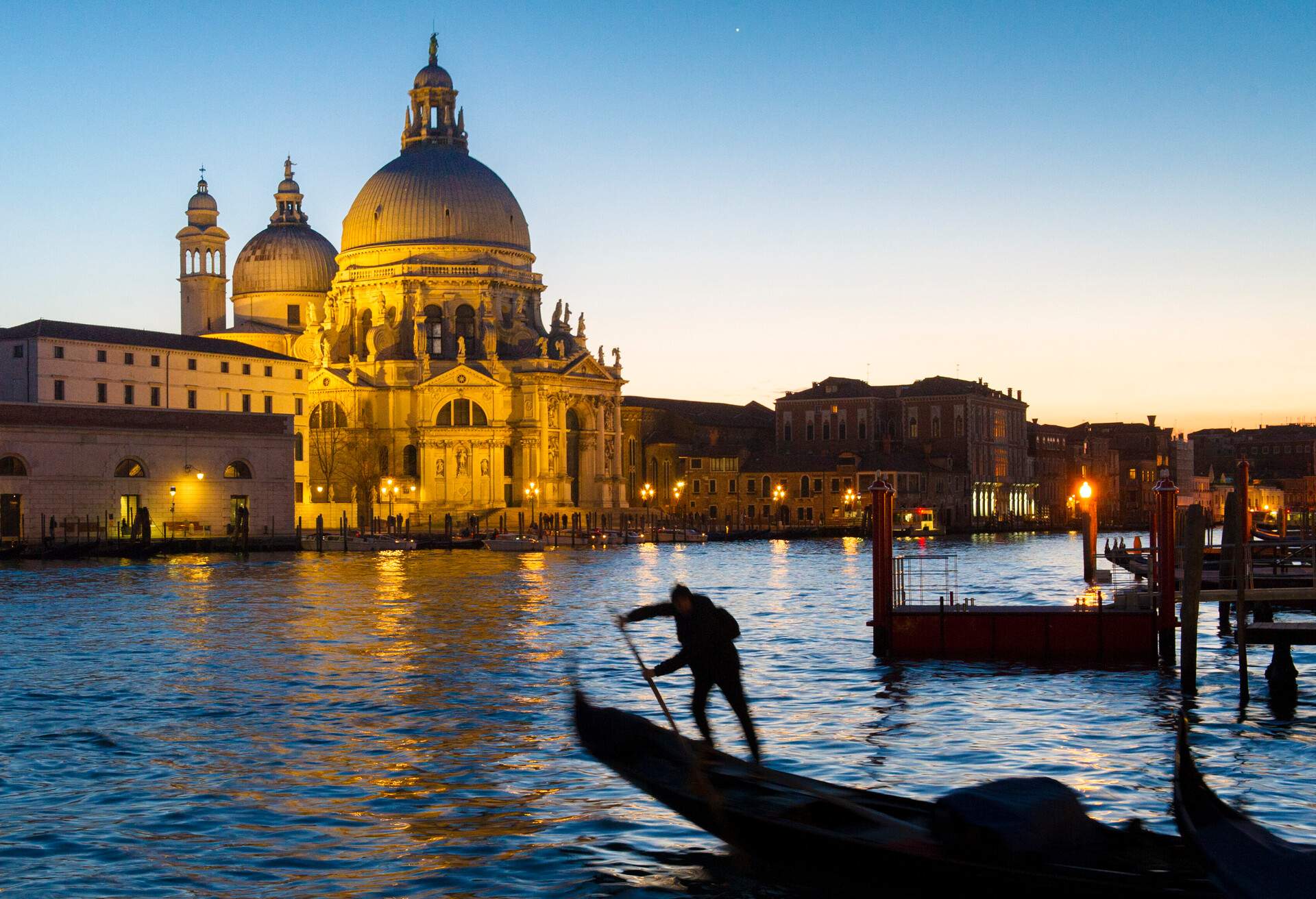
Not quite in the height of the official winter season, the feast of Santa Maria della Salute, one of the most important festivals in Venice, takes place on the 21st of November; it’s truly something special to witness.
The festival is held in tribute to Santa Maria, believed to have saved the city from the bubonic plague when it threatened its residents in 1630. It’s marked by a procession from the Grand Canal to the magnificent Basilica Santa Maria della Salute, which was built in gratitude in her honour.
The procession leaders wear special beaked masks carrying small lanterns with herbs, reminiscent of those worn during the plague. They are followed by large groups of people to light candles at the church.
There then follows festivities amongst erected food stalls by the church and in the city, with specialities such as the morish castradina, a soup made with mutton and cabbage that’s bound to warm you up on any cold day.
Feast of the Immaculate Conception
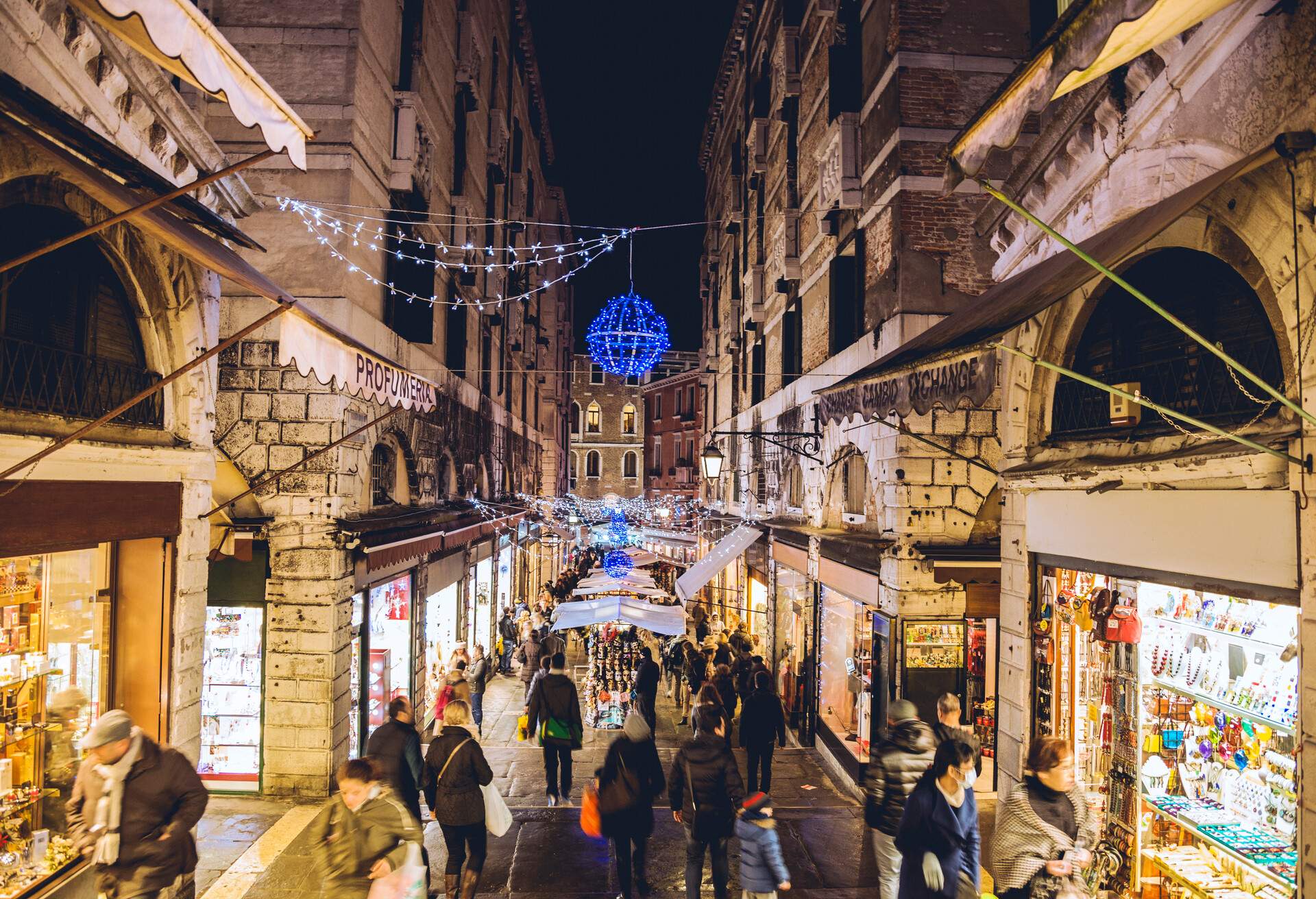
Venice in December sees the start of Christmas festivities. On the 8th of December, the Feast of the Immaculate Conception, the city’s Christmas lights are officially lit.
The Christmas lights add to the atmospheric weather in Venice in December and add an heir of romance to the shorter days. Even the gondolas decorate their boats for the season, and many historic attractions will also add festive lights and touches.
On this day there will also be stalls with traditional Italian foods around the city.
Venice Christmas Market
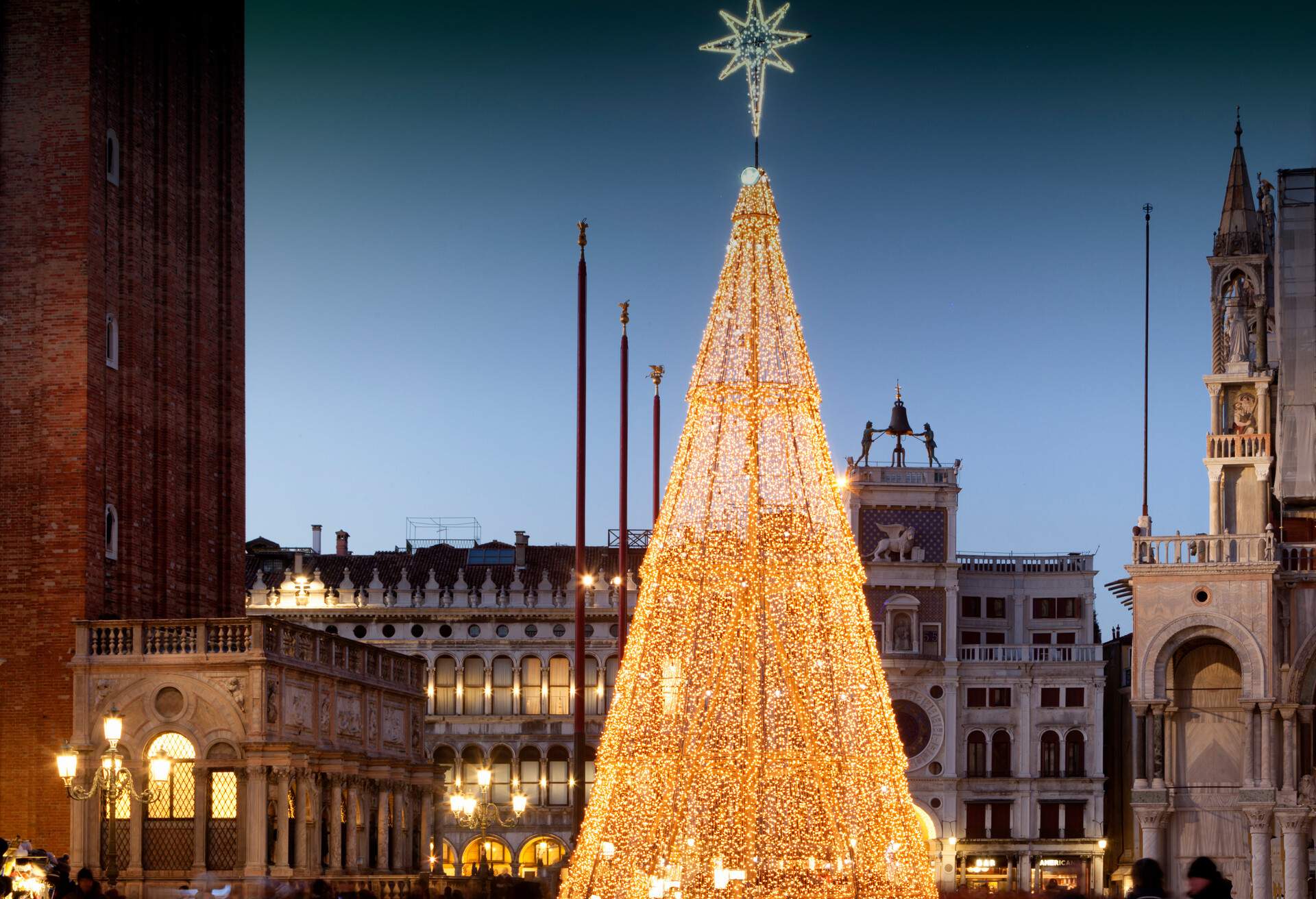
The Venice Christmas market is located at Campo Santo Stefano, the second largest square in the city after St Mark’s square, and traditionally begins around the last week of November.
Flanked by Venetian Palaces and two grand churches, you couldn’t find a more grandiose location for a Christmas market. It’s perfect to buy anything Venetian, from trinkets made with Murano glass to Italian speciality foods. It’s also the place to get your mask for the carnival if you want to attend.
The market is located close to the Peggy Guggenheim Museum, should you wish to indulge in more cultural activities.
La Befana Boat Race
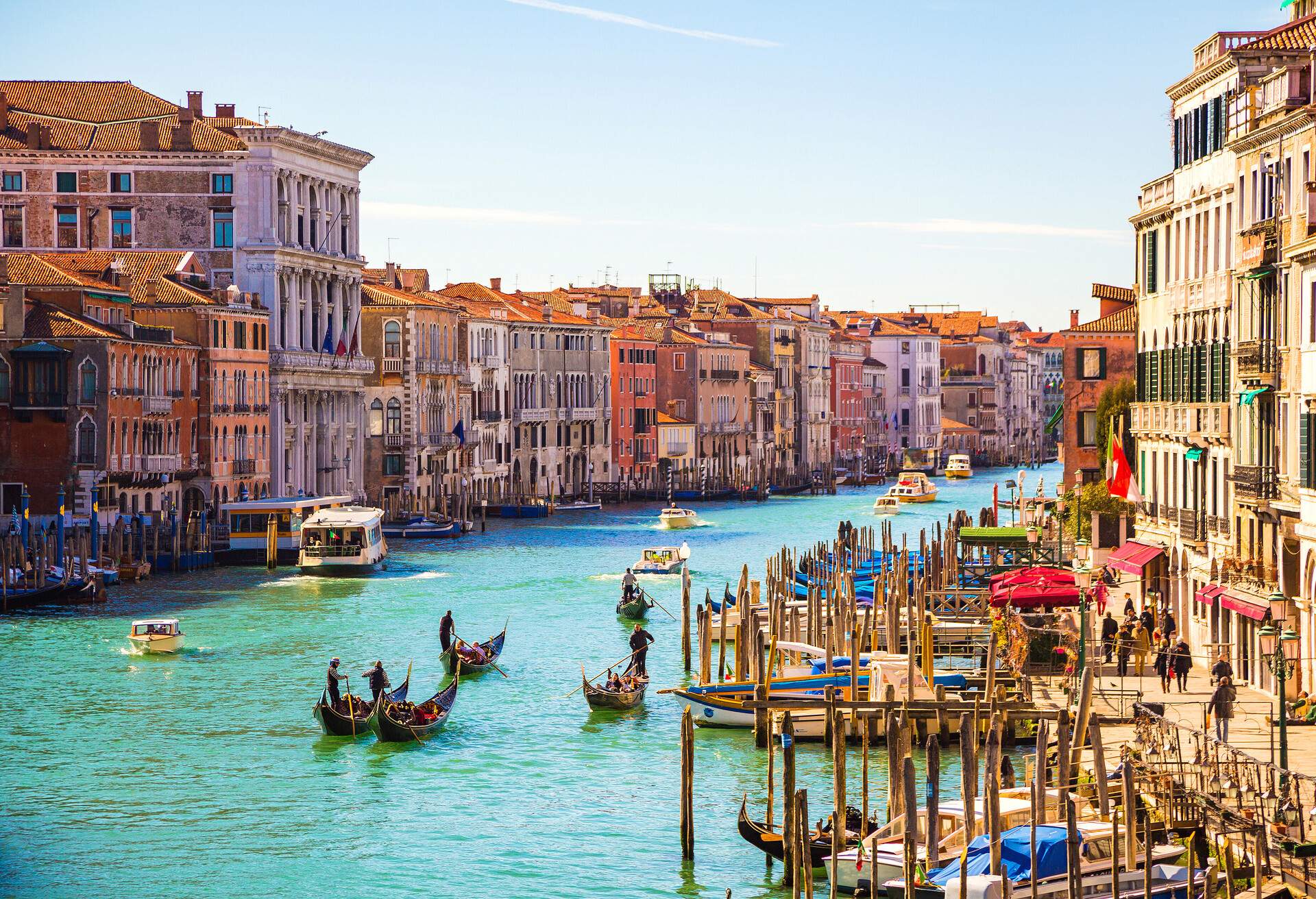
Once Christmas festivities are done around the world, Venice celebrates the Feast of the Epiphany on the 6th of January. It’s when the ‘good witch’ goes around rewarding those who’ve been good with gifts and tricks to those who haven’t. The celebration culminates with the La Befana, a boat race unique to Venice.
Members of one of the oldest rowing clubs in Venice dress up as witches, complete with broomsticks, and row down the Canal from San Toma to the Rialto Bridge, from which hangs a huge stocking for the gifts.
It’s a unique spectacle worth witnessing, with the city at large gripped in a celebratory mood. You’ll find fairs, festivals, and concerts all over the place. Should you need a good reason to be in Venice in January, other than cheaper flights and accommodation available around this time, this may be the excuse you need.
Valentine’s Day in Venice
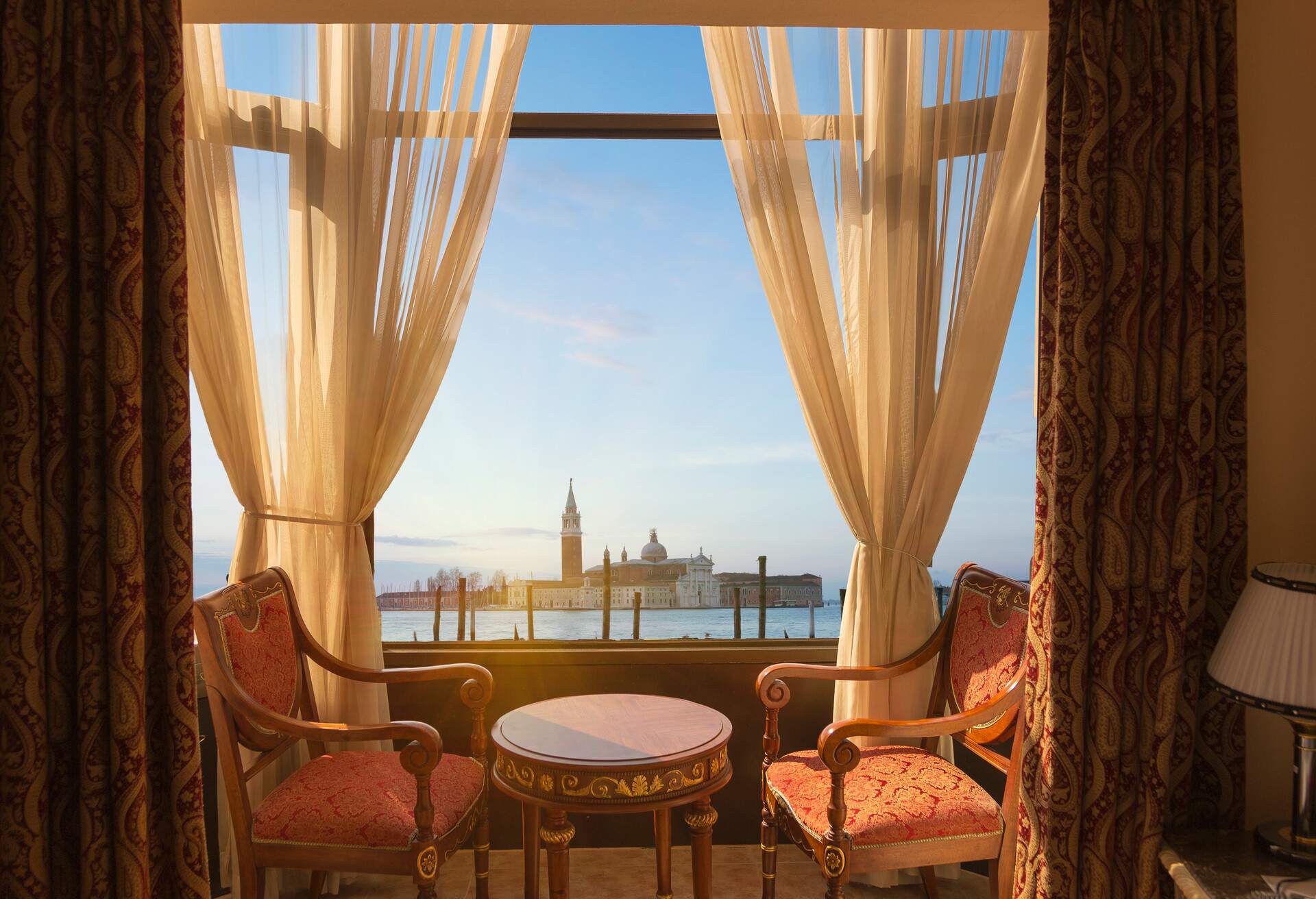
It may need a lot of forward-thinking and planning to get good deals, but spending Valentine’s Day with a loved one in Venice is the ultimate romantic gesture.
A walk across the Bridge of Sighs, where convicts got their last glimpse of the city before incarceration, has attained a more romantic notion and attracts lovers from all over the world, not to mention being one of the most beautiful sights of Venice.
To seal the experience, take a gondola ride; there are various options available, but the Serenade is the ultimate romantic experience; as the name suggests, it comes with a serenade from the gondolier. Just make sure you are dressed for the cooler weather.
Venice Carnivale
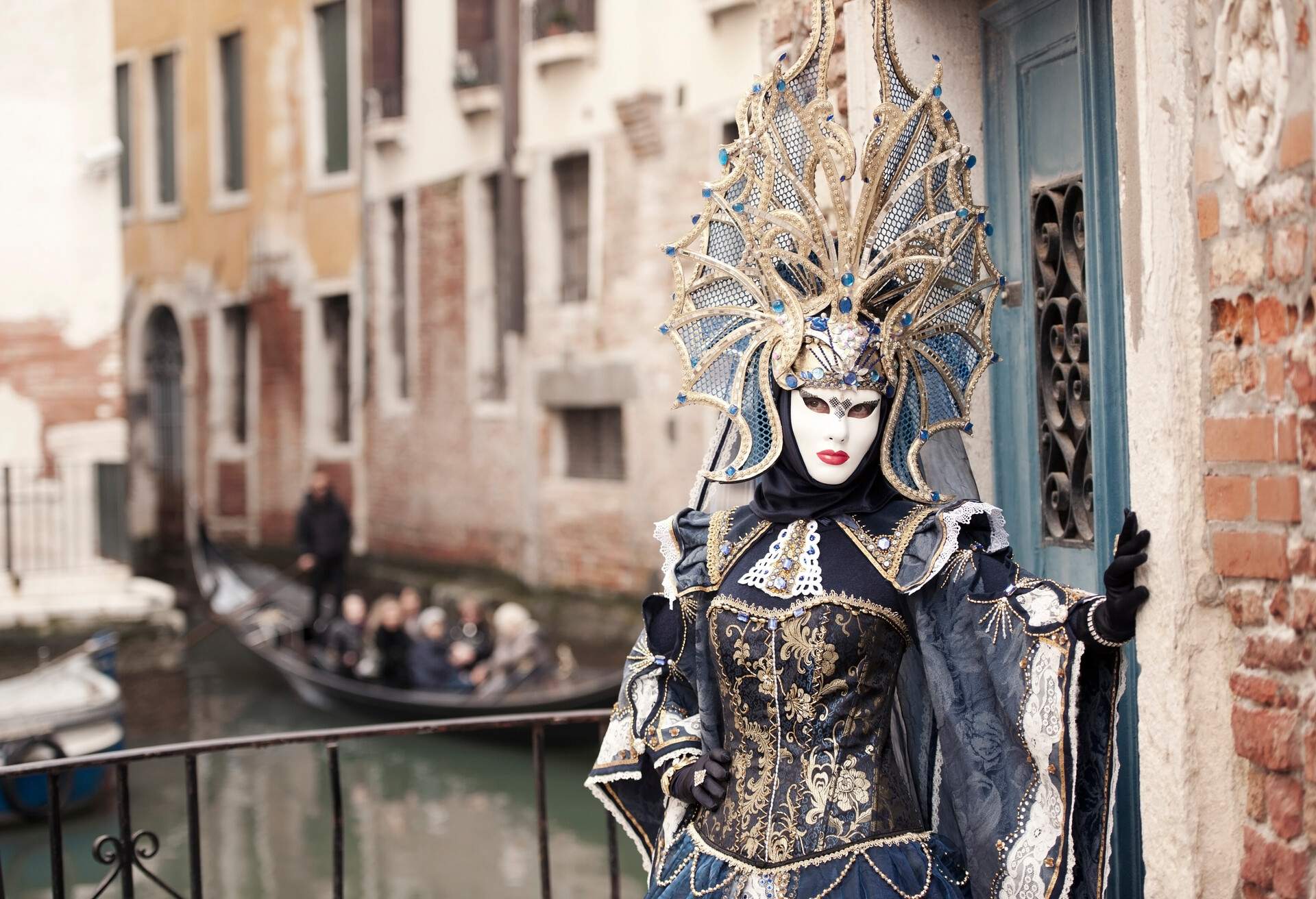
Known the world over, the Venice Carnivale is the crème de la crème of street parties. If you ever needed a reason to be in Venice in February, this is it. For around two weeks, Venice is transformed into an 18th-century city with people dressed in the most elaborate of costumes and masks.
There are street parties and entertainment everywhere you look, with various private balls to attend, too. The events’ climax over the last weekend is also the best time to attend if you can afford it. It’s costly and will take a bit of planning because the tickets go fast if you want to attend a particular party, but it can be done cost-effectively.
Of course, you don’t have to wear a costume either, but that’s the fun of it. A custom that started in 1162 to celebrate victory over a foe has turned into one of the biggest street parties in the world.
Attending the carnival and want to know where to eat, go to best restaurants in Venice.
Other things to do in Venice in Winter
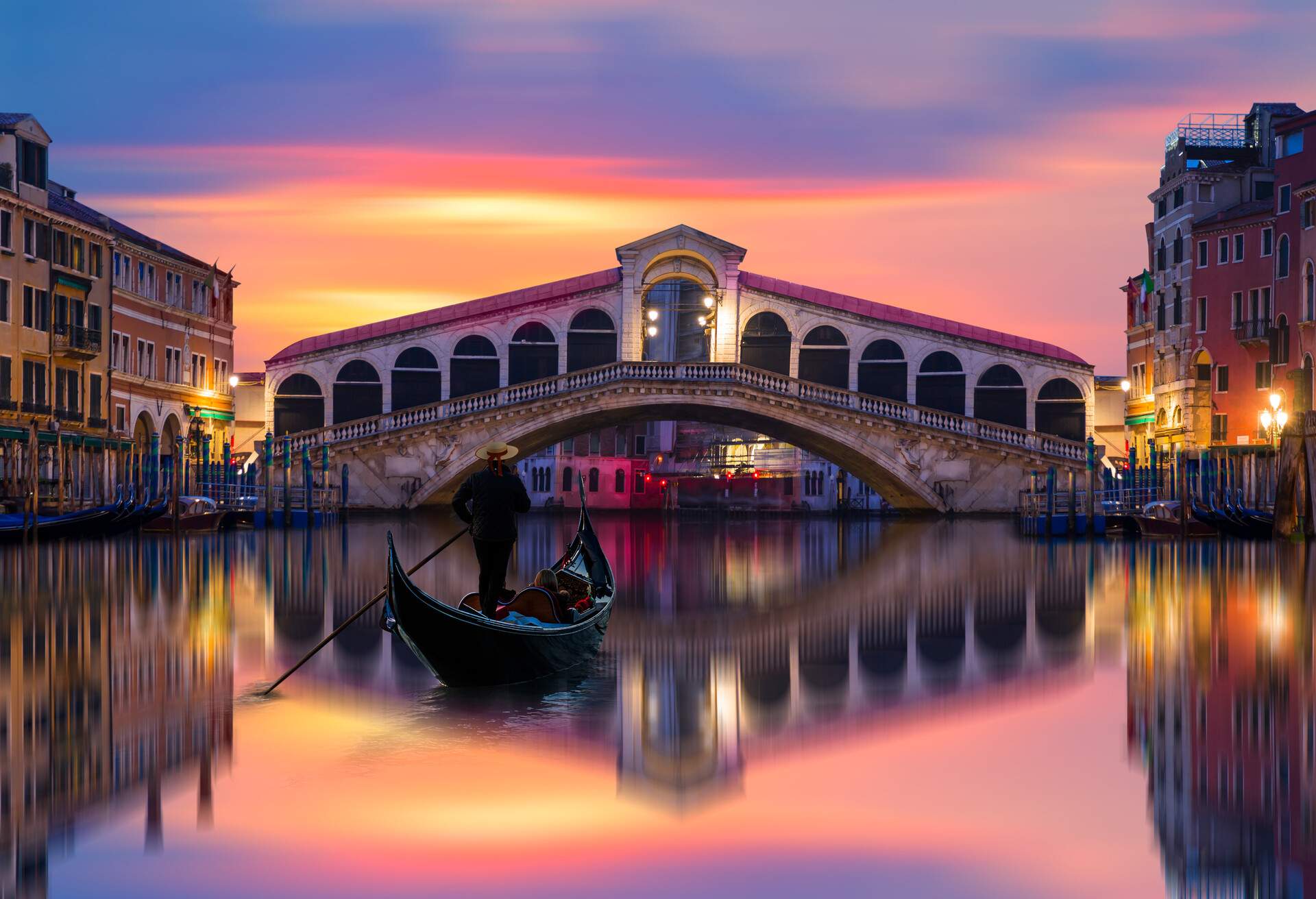
If the festivals alone aren’t enough to make you want to be in Venice in winter, then consider travelling to see most of the attractions that would otherwise be too crowded during summer.
The queues to St Mark’s are shorter, St Mark’s Square is less crowded, and with a warm blanket over your legs, you can enjoy a gondola ride along the Canals, which take on a rather romantic, eerie feel with the rising early-morning fog.
Even a peak over the Rialto Bridge feels different without the crowds jostling for space. It may also be a lot easier to get a table at Caffe Florian for your decadent ciocolata calda, a proper thick hot chocolate to warm you up as you watch the world go by.
Doge Palace
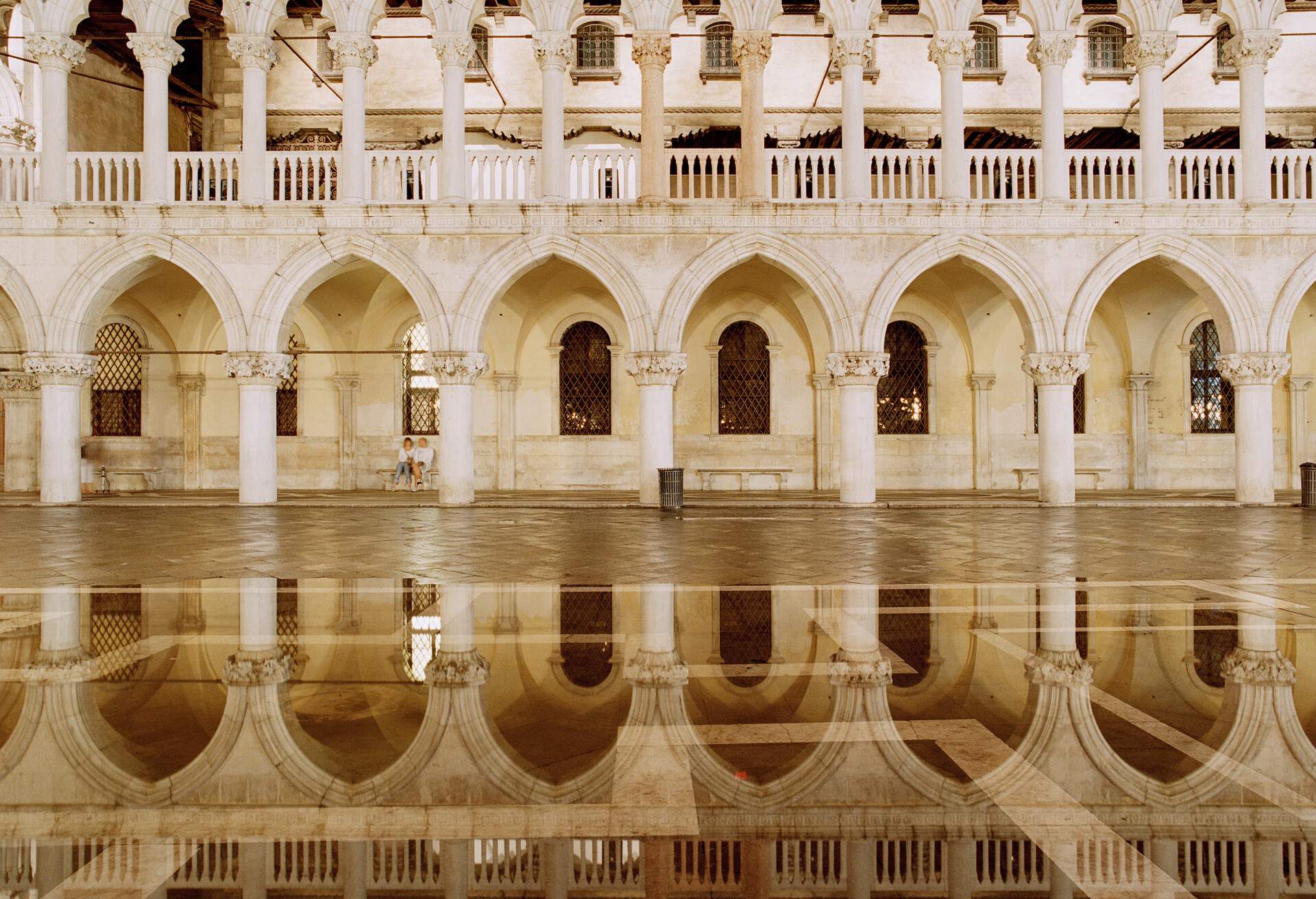
Right next to St Mark’s Cathedral is a fine example of Venetian Gothic architecture, the Doge’s Palace. In the summer, it is so popular that it’s rather difficult to get into, but in winter, it’s less crowded.
Once the seat of power in Venice, it’s the perfect place to learn and understand the city’s history. Throughout its lavishly decorated interiors, you’ll find precious artefacts of an era gone by, allowing you to glimpse the wealth Venice must have once enjoyed.
The palace holds some of the world’s most famous artworks, including Tintoretto’s Paradise, which is also one of the largest oil paintings on canvas. It stands in the Great Council, where governing decisions were made, as if holding the councillors to account.
A visit to the palace also gives you the opportunity to stand on the Bridge of Sighs, which connected the chambers to the cells that held prisoners once their sentence had been passed. One of the most famous prisoners to have occupied the cells was Giacomo Casanova, who later escaped to Paris.
Phoenix Theatre
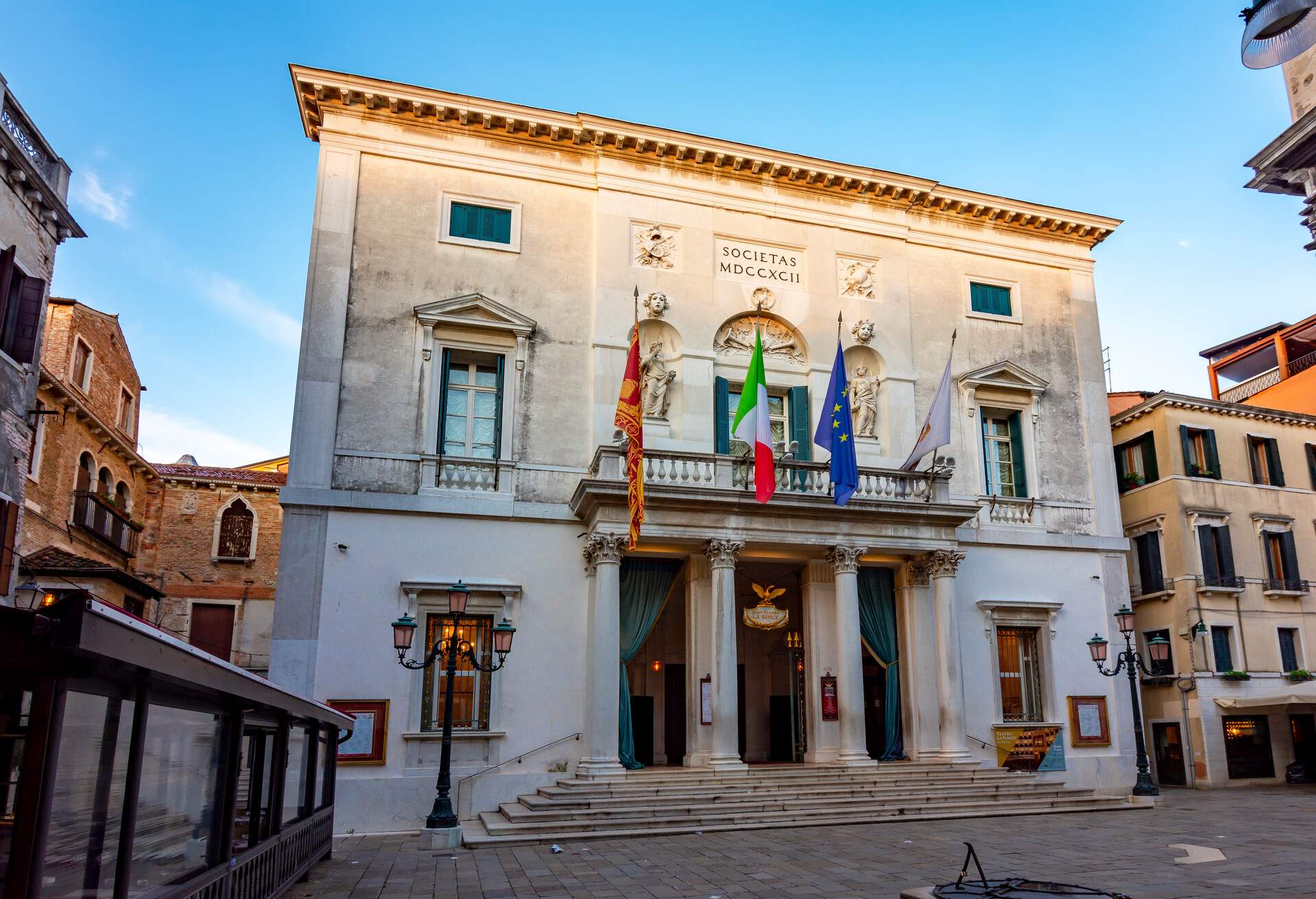
Another thing to do in Venice in winter, especially if the weather outside is not agreeable, is to catch a production at the Teatro La Fenice, the Phoenix Theatre. It is Venice’s only Opera house and a renowned landmark in Italy’s theatrical history.
The magnificent theatre has risen from the ashes, literally, three times. It has played host to many greats, Verdi and Rossini, among others, debuted their works here, so you will be in good company. If you can’t catch a show, it’s worth taking a guided tour of La Fenice’s magnificent and elaborately decorated theatres.
Looking for more winter travel inspiration? Check out the 21 best things to do in Venice and the KAYAK guide to Italy in winter.

